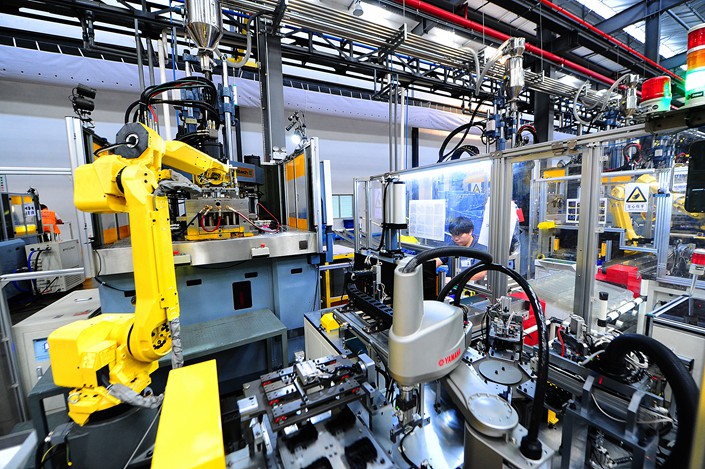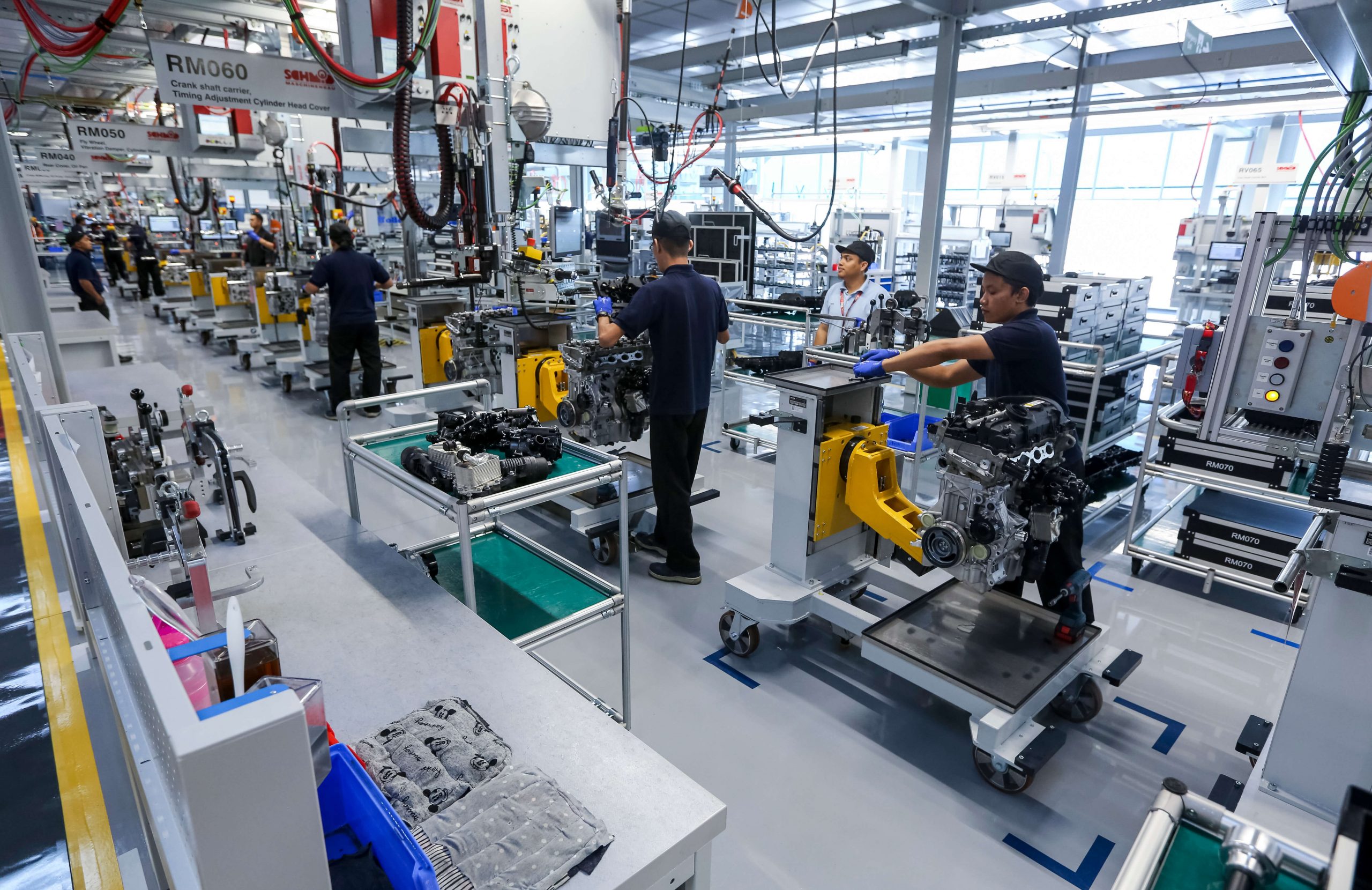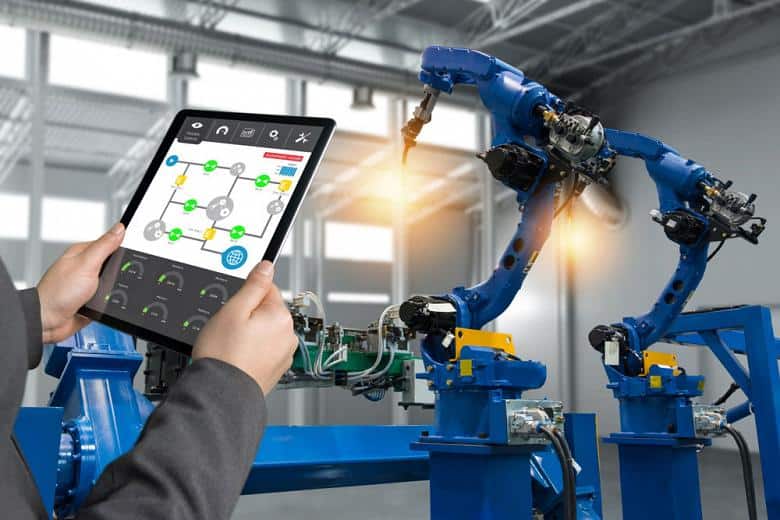How AI Can Revolutionize the Manufacturing Industry: A Practical Approach
In the dynamic realm of manufacturing, businesses face an array of challenges that demand innovative solutions. Challenges like complex processes, downtime, and the quest for high product quality are some of them. This blog will unravel the challenges of these manufacturing challenges and shed light on how Artificial Intelligence (AI) is emerging as a transformative force, which can revolutionize the manufacturing landscape.
Challenges in the Manufacturing Industry Without AI

1. Supply chain
Manufacturers often face disruptions in the supply chain, from raw material shortages to logistics bottlenecks. These challenges can lead to delays, increased costs, create uncertainties in production schedule, and difficulties in meeting customer demands.
2. Quality assurance
Ensuring consistent product quality can be a demanding task. Variations in materials, production processes, and human factors contribute to the perpetual challenge of maintaining high-quality standards. This lack of consistency not only impacted customer satisfaction but also necessitated reactive measures to address quality issues.
3. Cost management
Balancing the cost of production with market demands is an ongoing challenge. Fluctuations in raw material prices, energy costs, and other operational expenses can significantly impact a manufacturer’s bottom line. Before AI adoption, the absence of advanced analytics and real-time insights made it challenging for manufacturers to navigate cost fluctuations, jeopardizing pricing and profit margins in production.
4. Skilled labor shortages
As technology evolves, there is an increasing demand for skilled labor to operate and maintain advanced machinery. The shortage of qualified workers poses a challenge in harnessing the full potential of modern manufacturing capabilities. The scarcity of skilled labor limited day-to-day operations and hindered manufacturers from efficiently utilizing cutting-edge technologies, lowering their ability to keep pace with advancements and innovate.
5. Regulatory compliance struggles
Manufacturers must navigate a complex web of regulations and compliance standards. Keeping abreast of these requirements and ensuring adherence adds an extra layer of complexity to daily operations. Ensuring strict adherence to regulations added more complexity to daily operations and manual efforts. This, in turn, heightened the risk of non-compliance.

Transformative Role of AI
1. Supply chain
AI, with its machine learning capabilities, swiftly analyzes vast datasets, enabling proactive decision-making, reducing lead times, and enhancing overall operational efficiency in the supply chain. This transformative AI power empowers businesses to navigate challenges, cut costs, and stay agile, ensuring a competitive edge, and sustainable growth in a dynamic market.
AI plays a pivotal role in optimizing manufacturing processes by managing stock levels and production schedules, ultimately minimizing downtime for companies. This transformative capability ensures supply chain operations.
2. Quality assurance
AI technology using advanced algorithms, analyzes extensive datasets to detect potential quality issues, enabling proactive interventions and reducing the chance of defective products reaching the market. All of these are to assure the quality. The integration of AI in quality control not only improves accuracy but also streamlines manufacturing, ensuring higher overall product quality and increased customer satisfaction, marking a transformative impact on traditional manufacturing standards.
By leveraging AI, manufacturing firms can ensure the quality of their products. AI’s real-time monitoring and predictive capabilities not only minimize production faults but also guarantee that the final products consistently meet industry standards, thereby ensuring heightened customer satisfaction.
3. Cost management
AI in cost management empowers manufacturers to make data-driven decisions, improving financial efficiency and ensuring long-term sustainability. By enhancing strategic decision-making and resource utilization, AI reshapes cost management practices, becoming a cornerstone in driving financial resilience in manufacturing.
Another transformative role of AI is harnessing AI capabilities, manufacturing companies not only streamline operational costs but also elevate production efficiency, leading to significant savings, and enhanced the manufacturing process.
4. Skilled labor shortages
AI mitigates skill gaps in manufacturing by handling tasks that require specialized skills, allowing workers to focus on strategic activities. This simultaneously boosts operational efficiency and fosters a dynamic work environment. The integration of AI not only enhances operational efficiency but also contributes to upskilling the existing workforce, aligning manufacturing practices with the demands of a rapidly evolving technological landscape.
AI implementation eliminates the need for manual tracking of workers during their tasks in manufacturing companies, streamlining operations, and automating routine tasks. This not only saves time but also empowers workers to focus on more strategic aspects of their roles.
5. Regulatory compliance
AI technology eases the struggle by automating the monitoring and enforcement of complex regulations, keeping manufacturers informed about the requirements, and minimizing the risk of non-compliance as well as manual efforts. Through machine learning algorithms, AI systems can rapidly analyze and interpret vast amounts of regulatory data, keeping manufacturers informed about evolving compliance requirements. This transformative impact positions AI as a crucial tool in maintaining regulatory adherence and streamlining compliance processes in the manufacturing setting.
By employing PPE detection, AI seamlessly enforces industry standards and regulations; in instances where a worker forgets to use Personal Protective Equipment (PPE), AI vision tracking promptly detects this lapse in real-time.
To conclude,
In the absence of AI, the manufacturing industry faces an array of challenges, challenging its resilience and adaptability. Recognizing the imperative to address these hurdles is paramount for manufacturers aiming to develop in a competitive landscape.
Why Tapway Solution ?
In the manufacturing industry, AI is indispensable due to its capacity to address complex and dynamic operational demands, optimizing processes and contributing to overall efficiency.
At Tapway, we are dedicated to enhancing efficiency in the workplace. We recognize the importance of accuracy and efficiency in doing tasks. Our innovative VisionTrack solution is at the forefront of this transformation journey.
Ready to take the next step? Visit our website here or contact us at sales@gotapway.com. Join us in exploring innovative solutions and strategies, propelling the manufacturing sector with transformative advancements.
